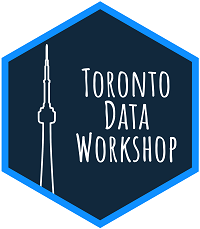Innovative Datasets for Research Workshop
Hosted by: The Centre for the Study of Political Behaviour at Western University & the University of Toronto Data WorkshopDate: 10 February 2023
Time: 1:30-3:30pm EST

ZOOM: https://westernuniversity.zoom.us/j/6161674709
Meeting ID: 616 167 4709
Panelists
Digitization of the Australian Parliamentary Debates, 1998-2022
Abstract: Public knowledge of what is said in parliament is a key tenet of democracy, and a critical resource for political science research. In Australia, following the British tradition, the written record of what is said in parliament is known as Hansard. While the Australian Hansard has always been publicly available, it has been difficult to use it for the purpose of large-scale macro and micro-level text analysis because it has not been available as a dataset of sufficient quality. Following the lead of the Linked Parliamentary Data project which achieved this for Canada, we provide a new, comprehensive, high-quality database that captures all proceedings of the Australian parliamentary debates from 1998 to the present using Hansard. The database is publicly available and can be readily linked to other datasets such as election results. The creation and accessibility of this database will enable the exploration of questions that are not currently possible to explore, serving as avaluable resource for both researchers and policymakers. Bio: Lindsay Katz holds a Masters of Statistics from the University of Toronto and a Bachelor of Arts and Science from the University of Guelph where she specialized in Mathematical Science and International Development. She works at the University of Toronto with Professor Monica Alexander to research demographic variation in short-term migration patterns using Facebook data, and with Professor Rohan Alexander to digitize the Australian parliamentary debates from 1901 to present. As an interdisciplinary researcher, she is interested in using statistics to better understand social processes in the world.
Bio: Lindsay Katz holds a Masters of Statistics from the University of Toronto and a Bachelor of Arts and Science from the University of Guelph where she specialized in Mathematical Science and International Development. She works at the University of Toronto with Professor Monica Alexander to research demographic variation in short-term migration patterns using Facebook data, and with Professor Rohan Alexander to digitize the Australian parliamentary debates from 1901 to present. As an interdisciplinary researcher, she is interested in using statistics to better understand social processes in the world.
The Canadian Municipal Elections Database
Abstract: This presentation will introduce the Canadian Municipal Elections Database, providing background on the motivation for the dataset, its sources and construction, and some examples of its recent use. I will discuss the opportunities and challenges involved in datasets that originate in archival sources and provide examples of possible future uses and extensions of municipal election results data.
 Bio: Jack Lucas is an Associate Professor in the Department of Political Science at the University of Calgary. His research is focused on municipal elections and democracy, political representation, and the role of ideology in municipal politics. He is also doing research on the urban-rural divide in Canadian political development. He is Project Director for the Canadian Municipal Barometer, an annual survey of mayors and councillors across Canada.
Bio: Jack Lucas is an Associate Professor in the Department of Political Science at the University of Calgary. His research is focused on municipal elections and democracy, political representation, and the role of ideology in municipal politics. He is also doing research on the urban-rural divide in Canadian political development. He is Project Director for the Canadian Municipal Barometer, an annual survey of mayors and councillors across Canada.
Datagotchi: A Gamified Knowledge-Transfer and Data Collection App
Abstract: Datagotchi is a gamified and knowledge transfer tool that aims at guessing users’ vote choice based on their lifestyle and sociodemographic characteristics. Through an interactive widget, the app also allows users to learn about the effects of each key determinant on political preferences. Datagotchi was launched in partnership with the Canadian Press during the 2022 Quebec election, receiving extensive media coverage, and collected responses from over 90 000 users. Discussions are underway to develop versions of Datagotchi in other electoral contexts, including for the next Canadian, Japanese and Indonesian national elections. Given the size of the dataset, Datagotchi will soon enable researchers to study behaviors over time, but also regionally at the constituency level and for more specific groups. The project also received funding to apply the tool in other areas like health and literature.  Bio: Catherine Ouellet is a PhD candidate in Political Science at the University of Toronto and is one of the co-creators of Datagotchi. Her main research interests include lifestyle, Quebec and Canadian politics, and public opinion. Her work has been published in various journals, including Parliamentary Affaires, French Politics, the Canadien Journal of Political Science, Behavoural Public Policy, The British Journal of Canadian Studies, and Analysis of Social Issues and Public Policy.
Bio: Catherine Ouellet is a PhD candidate in Political Science at the University of Toronto and is one of the co-creators of Datagotchi. Her main research interests include lifestyle, Quebec and Canadian politics, and public opinion. Her work has been published in various journals, including Parliamentary Affaires, French Politics, the Canadien Journal of Political Science, Behavoural Public Policy, The British Journal of Canadian Studies, and Analysis of Social Issues and Public Policy.
 Co-author Bio: Yannick Dufresne is Leadership Chair in the Teaching of Digital Social Sciences and Assistant Professor of Political Science at Université Laval. He specializes in the study of public opinion, political communication and elections. Yannick has also contributed since 2011 to the design and development of several large-scale engagement and data collection applications, including Datagotchi.
Co-author Bio: Yannick Dufresne is Leadership Chair in the Teaching of Digital Social Sciences and Assistant Professor of Political Science at Université Laval. He specializes in the study of public opinion, political communication and elections. Yannick has also contributed since 2011 to the design and development of several large-scale engagement and data collection applications, including Datagotchi.
Introducing the Worldwide Age Representation in Parliaments (WARP) data set
Abstract: The absence of young adults in elected legislative assemblies is a democratic deficit with potentially severe repercussions. Yet, research is rarely able to address the issue of age group representation systematically because we are lacking empirical information on the age distribution in parliaments. The Worldwide Age Representation in Parliaments (WARP) data set remedies this dearth of data. It provides information about the numerical presence of age groups in parliaments, spanning across the globe and over time and includes age data on legislators, such as the share of members of parliament (MPs) aged 30 years or under, 35 years or under, or 40 years or under. The data set also reports measures that compare the presence of legislators aged 30 years or under, aged 35 years or under, aged 40 years or under, aged 41 to 60 years, as well as aged 61 years or over in relation to the same age group in the general population of a given country. Moreover, it includes gendered figures, such as the presence of young female MPs. The WARP data set contains data for more than 700 elections in 149 countries, so far, and is freely available online. It allows for a novel analysis of the age composition of legislatures. Bio: Daniel Stockemer is Full Professor and Konrad Adenauer Research Chair in Empirical Democracy Studies at the University of Ottawa. His research interest include political representation, politicial behavior and populism. Among others, Daniel has published in Public Opinion Quarterly, the European Journal of Political Research, and Political Behavior.
Bio: Daniel Stockemer is Full Professor and Konrad Adenauer Research Chair in Empirical Democracy Studies at the University of Ottawa. His research interest include political representation, politicial behavior and populism. Among others, Daniel has published in Public Opinion Quarterly, the European Journal of Political Research, and Political Behavior.

